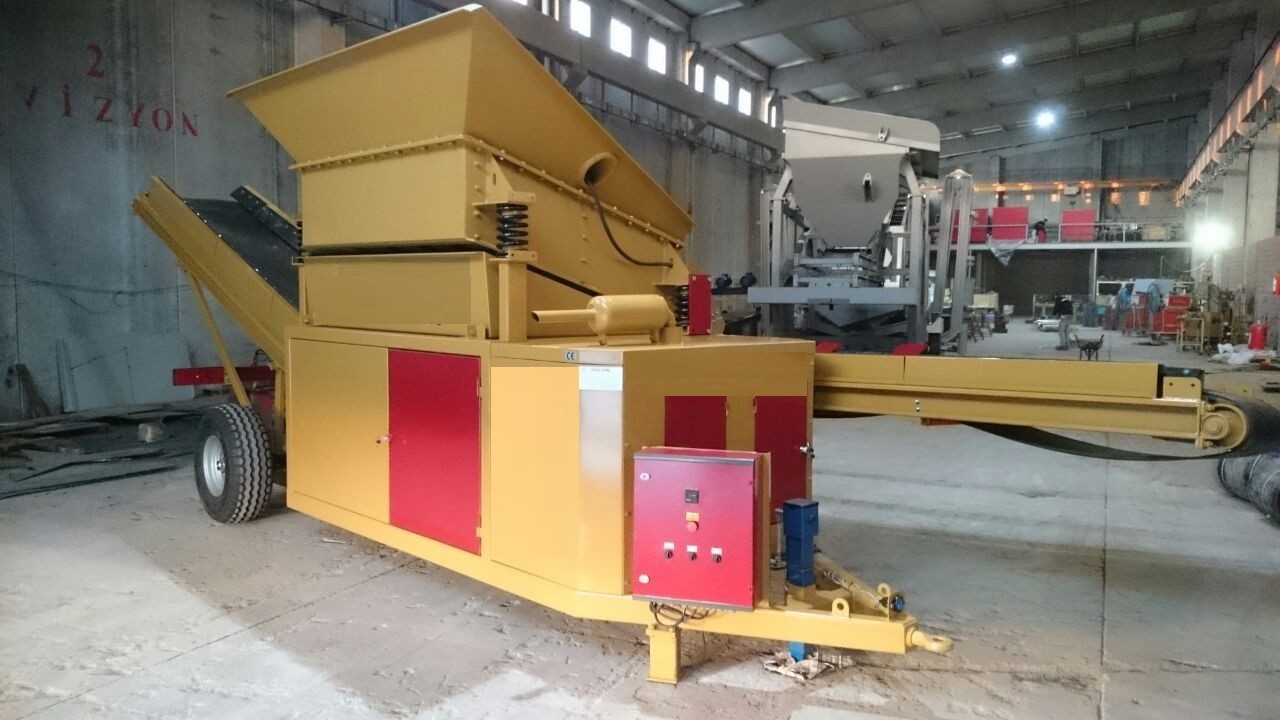Limestone is one of the most abundant and versatile natural resources on Earth, essential in various industries, including construction, agriculture, and manufacturing. In the quest to extract, crush, and process limestone efficiently, mobile limestone crushing and screening plants have become a vital solution. These portable units not only offer flexibility and mobility but also reduce the need for heavy infrastructure, enabling businesses to operate in remote locations with ease. This blog will explore the features, benefits, and applications of mobile limestone crushing and screening plants, offering insights into their design and how they have revolutionized the mining and construction sectors.
What is a Mobile Limestone Crushing and Screening Plant?
A mobile limestone crushing and screening plant is a compact, portable facility designed to break down and screen limestone rocks. These plants are equipped with crushers, screening units, conveyors, and other essential equipment to perform tasks such as:
-
Limestone Crushing: Breaking down large limestone blocks into smaller, usable sizes.
-
Screening: Sorting crushed material into different sizes for various applications.
-
Conveying: Transferring crushed materials to storage or transport vehicles.
These plants offer mobility, enabling the operations to move to different job sites, adapting to various environments without the need for permanent infrastructure.
Components of a Mobile Limestone Crushing and Screening Plant
Mobile limestone crushing and screening plants typically consist of several key components:
-
Jaw Crusher:
-
The jaw crusher is one of the primary machines in the crushing process. It reduces large limestone rocks into smaller, manageable pieces by using compressive force.
-
-
Impact Crusher:
-
Impact crushers are used to further reduce limestone into finer particles. They use high-speed impact forces to break the material.
-
-
Vibrating Screen:
-
A vibrating screen sorts the crushed limestone based on size, allowing for efficient separation and classification of different material types.
-
-
Conveyors:
-
Conveyors are essential for transporting the crushed limestone from one stage to another or for stockpiling the final product.
-
-
Diesel Generator:
-
Most mobile plants rely on diesel generators for power, ensuring their operation in remote locations without relying on external power sources.
-
-
Control Systems:
-
Modern mobile plants are equipped with automated control systems that ensure the entire operation is streamlined, safe, and efficient.
-
Benefits of Using a Mobile Limestone Crushing and Screening Plant
-
Flexibility and Mobility:
-
The main advantage of a mobile plant is its ability to move to different job sites. This flexibility is crucial in industries where operations need to move frequently, such as mining and construction.
-
-
Cost-Effectiveness:
-
These plants reduce the need for expensive infrastructure. Since they are mobile, companies don’t have to build permanent crushing stations, which can be costly and time-consuming.
-
-
Reduced Environmental Impact:
-
The mobility of these plants minimizes the environmental footprint of extraction and processing. The plants can be moved away from sensitive areas, reducing long-term damage to ecosystems.
-
-
Increased Efficiency:
-
With all equipment in one compact unit, the processes of crushing and screening become highly efficient. Material handling is optimized, reducing the downtime between stages of the process.
-
-
Higher Production Output:
-
Mobile plants are often equipped with powerful machinery, capable of processing large amounts of limestone quickly, leading to higher productivity.
-
Applications of Mobile Limestone Crushing and Screening Plants
-
Construction and Road Building: Limestone is used extensively in the construction industry for the production of concrete, as an aggregate for roads, and for other building materials. Mobile crushing and screening plants help provide the necessary materials directly at construction sites.
-
Mining: In mining operations, especially those in remote areas, mobile plants offer a cost-effective and efficient way to process limestone without needing permanent crushing facilities.
-
Agriculture: Limestone is also used to improve soil quality in agriculture. Mobile plants can be used to crush and process limestone on-site, reducing transportation costs and ensuring that fresh materials are always available.
-
Recycling: These plants can also be used in recycling operations, such as crushing and screening concrete or asphalt, contributing to the recycling of materials for reuse in construction.
Challenges and Considerations
Despite their numerous advantages, mobile limestone crushing and screening plants do come with certain challenges:
-
Maintenance: Like any machinery, mobile plants require regular maintenance to ensure optimal performance. Lack of maintenance can lead to breakdowns, which can impact productivity.
-
Fuel Consumption: Mobile plants often rely on diesel generators, which can lead to high fuel costs, particularly in remote areas where fuel transportation can be expensive.
-
Material Handling: Proper material handling is crucial to ensure that the crushed material is transported efficiently and without contamination, which could affect the quality of the final product.
Conclusion
Mobile limestone crushing and screening plants offer a flexible and efficient solution for limestone extraction, crushing, and processing. These plants provide cost-effective, environmentally friendly, and highly efficient operations, making them an essential tool in industries such as construction, mining, and agriculture. By providing mobility and minimizing infrastructure costs, they have become indispensable in a wide variety of applications, contributing to the sustainable extraction and processing of limestone
 English
English
 Le français
Le français
 Türkçe
Türkçe

